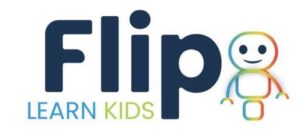SAN ANTONIO — Has the role of the superintendent grown more difficult in recent years? Are there too many great superintendents considering leaving their roles and moving on to something new?
If the near-unanimously raised hands and affirmations of a meeting room packed with superintendents in the Henry B. González Convention Center was any indication, the answer to both questions is a resounding “yes.”
“Seeing terrific, amazing leaders move on to do something else is difficult to see,” Doug Roberts, founder and CEO of the Institute for Education Innovation, told attendees at AASA’s National Conference on Education during a Feb. 16 session on building leadership pipelines.
However, rather than “just crying about it,” Roberts said, his company seeks to bridge gaps and foster collaboration between superintendents and education business leaders, to advocate and provide support for district leaders on issues like equity, self-care and thinking outside the box. “These are not merely topics of seminars. These are what we live, breathe, eat, drink and work on every day.”
When he speaks with superintendents who tell him they’re thinking about what to do next, “it truly is heartbreaking,” Roberts said. So along with its mission of supporting those in the field, IEI is also working to find the next generation of leaders for the superintendency.
Over the next hour, Roberts and a panel of four superintendents shared tips and strategies on everything from mentoring to “normalizing superintendents taking care of themselves.”
Never stop seeking mentorship
Anyone who is reflective at all has a list of people who influenced the trajectory of their career — no matter their profession, said PJ Caposey, superintendent of Meridian Community Unit School District 223 in Stillman Valley, Illinois.
“I think it’s invaluable to continue to find coaches for yourself. No matter how much you think you may have arrived or how many people you may actually coach, I still go out and actively seek coaching for myself because I’m unfinished and need support there,” Caposey said. He noted that leaders at vendor companies and district partners have served as “unexpected coaches” at times, giving him insights into business structure and the parallels he could use for organizing his district.
He pushed me into that role because he saw something in me, so I would encourage those who are in our seats to see people who have that potential and push them, because they may not push themselves.

Melvin Brown
Superintendent of Montgomery Public Schools in Alabama
Mentors can also make a difference when it comes to helping someone who may not see leadership in their future ultimately recognize their potential.
“I never wanted to be a superintendent or a principal. I wanted to teach special ed and I wanted to coach basketball,” said Justin Jennings, superintendent of Youngstown City School District in Ohio. “My moment was [when] the superintendent of Grand Rapids Public Schools at the time … came to me and said, ‘Hey, I need you to be an administrator.’”
After telling Jennings to think about it, the superintendent returned the next day and said he meant to tell him he could “take the principal job or you’ve got to find a job somewhere else.” But that provided the push he needed to embrace a leadership role.
Jennings advised that superintendents should always make sure their contracts include a coach and the ability to choose that coach. “I don’t want a mentor who can’t do what I need them to do,” he said.
Your mentor should be someone who can not only help build your capacity, but help you move forward, Jennings said.
“I kind of backed into administration myself,” added Melvin Brown, superintendent of Montgomery Public Schools in Alabama. When he was a 7th grade teacher finishing his administrative prep program, his superintendent in a previous district suggested he apply to be the elementary school principal.
Brown initially questioned the request because he had not even been an assistant principal yet, and was told, “We think you can handle it.” He ultimately got the job.
“He pushed me into that role because he saw something in me, so I would encourage those who are in our seats to see people who have that potential and push them, because they may not push themselves,” said Brown.
Eliminating barriers builds future capacity
Barbara Mullen, incoming superintendent of Rush-Henrietta Central School District in New York, said while it’s important to have someone tap you on your shoulder and see something in you, women have often had to give themselves that push because they are underrepresented in leadership.
“Nobody tapped me on the shoulder and told me, ‘Oh, you should be a superintendent’ or ‘You should be a principal’ or ‘You should be an administrator.’ I just saw a pathway,” said Mullen. “I’m not going to apologize for that. I’m not going to mince any words that I believe I am a leader, and that I can lead, and that I’m capable to lead at this level.”
The longer she doubted herself, the longer students had to wait for what she could bring to the table in a district, she said. “And now they don’t have to wait anymore.”
Mullen added that it’s particularly crucial for women to serve as powerful sponsors to others on the rise at a time when there’s demand for more women to lead.
Roberts noted that 80% of superintendents are White men. Beyond that homogeneity, other barriers include the courses and credentials needed, as well as the recruiters and boards that have to be impressed and convinced to hire you.
Another huge barrier to entry? Making sure you’re seeking the roles best suited for you.
Rather than taking the first thing that comes along, Brown said, “I think it’s important to take some reflection to say, ‘Is that really where I’m supposed to be, in that particular place?’ And to be OK with walking away and saying, ‘No, that’s not it.’”
Just because you have an opportunity to be a principal or superintendent, it may not be a district that’s a fit for your skill set or goals, Brown said.
“I struggled with that a little bit in going to Montgomery because I didn’t know what to expect,” said Brown. Coming from Virginia and then living in Ohio for several years, he had preconceived notions about Alabama — and they almost stopped him from seeking his current position. “Being a superintendent of color, it’s interesting and difficult depending on where you are and the types of things you have to confront,” Brown said.
“In actuality, when I got an opportunity to go there, it’s a place that fits my skill set really well, and it certainly gives me the types of things I want to be able to do in a school district to move it,” Brown said.
Because being uncomfortable is how leaders grow and improve and push past their ceilings, Brown said, “it’s incredibly incumbent upon us to find leaders we’ve worked with or we see, and push them to go into things that make them uncomfortable.”
Nobody tapped me on the shoulder and told me, ‘Oh, you should be a superintendent’ or ‘You should be a principal’ or ‘You should be an administrator.’ I just saw a pathway.

Barbara Mullen
Incoming superintendent of Rush-Henrietta Central School District in New York
Caposey said as a straight White male, he can’t imagine some of the privileges and opportunities he’s received that others haven’t. When working to eliminate barriers, one thing he keeps top of mind is that “we can control what we can control.”
By that, he means that while individual leaders can’t easily control and fix barriers at the macro level, they can work to eliminate them at the micro or local level for as many people as possible. And then they can use their networks to help peers do the same in their own districts.
“I can’t sit up here and say I can fix education, but I can do my part,” Caposey said, reiterating the importance of consciously creating pathways for women and people of color.
Higher ed has a role to play
Asked what can be done in higher ed to improve leadership pipelines, Jennings said first and foremost, these programs need leaders who are also current practitioners. Additionally, he said, state legislatures must stop lowering standards.
“In Ohio, you’ve just got to sit up and take a couple classes and then you’re a certified administrator, but that doesn’t give you the seasoning you need,” Jennings said. Preparation programs must also be willing to partner with districts on specialized programs, like those for urban and rural settings, because those districts come with very different needs, he said.
“Often when I do my research, I don’t just do it on urban schools, because rural schools often mirror urban schools in most ways. And even the poverty sometimes is even worse [in rural schools],” Jennings said.
Mullen advocated for the need for superintendent residency programs, similar to those available to aspiring teachers and principals, to immerse aspiring district leaders in the work. “For the superintendency, it may not be logistically possible to have your deputy released for a certain amount of time, but it could be. It could be if the educator prep program subsidized it.”
Even though that model would likely result in that executive leadership team member ultimately leaving their district for a superintendency in another, “it’s an investment that you’re making in a national cohort,” Mullen said.
Brown echoed that administrator prep programs need to evolve to better address contemporary issues facing schools. “I don’t believe higher ed keeps up with that in many respects, and I won’t even get into talking about how teachers are prepared,” he said. “It’s a whole different ball game we need to address.”
Making sure aspiring administrators are given authentic opportunities to see what the work really looks like is critical, Brown added.






Leave a Reply